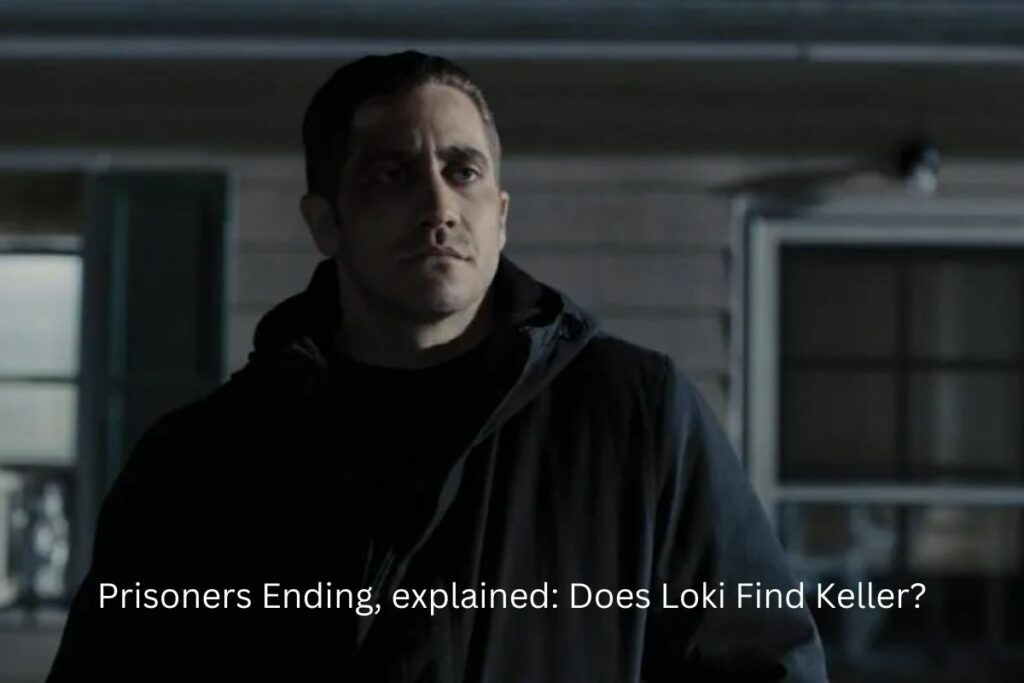Denis Villeneuve’s prisoner thriller is riveting. Villeneuve’s English-language debut was suspenseful, thrilling, and exciting. It urges us to deconstruct and interpret its shifting pictures. ‘Prisoners’ pulls us deep into its characters’ lives and emotional conflicts thanks to Aaron Guzikowski’s storyline and Roger Deakin’s dreary Pennsylvania suburbs.
A flawless thriller about survival, tenacity, and faith. Hugh Jackman and Jake Gyllenhaal elevate this thriller. Keller Dover (Jackman), a poor contractor, lives a quiet life with his wife Grace (Maria Bello), son Ralph (Dylan Minnette), and daughter Anna (Erin Gerasimovich). Keller, a fervent Catholic and survivalist, has enough supplies to endure an apocalypse in his basement.
Missing Anna devastates them. Detective Loki (Gyllenhaal) takes over the case. Detective Loki is honest and pragmatic. He believes in proof, not eternity. Keller and Loki search for the lost children with opposing feelings. Keller seeks vengeance, and Loki pursues a defined route. Let’s learn about the characters’ fates and the ending! SPOILERS.
Prisoners’ Storyline
Keller and his family visit friends during Thanksgiving. Keller’s friends Franklin and Nancy Birch (Terrence Howard and Viola Davis) have an Anna-aged daughter, Joy (Kyla-Drew Simmons). The girls discover an RV outdoors while playing. They walk curiously but never return. Their parents desperately search everywhere but fail. Police involvement boosts the tale.
Alex (Paul Dano), the RV owner, is questioned as a suspect. Keller panics when he sees him and thinks Alex kidnapped him. Loki keeps him in custody but releases him owing to a lack of proof. Keller kidnaps Alex for the truth. He tortures Alex in his old residence. Keller asks God for forgiveness after every act of violence but grows impatient.
Read More:
- Dave Season 3 Premiere Date Has Been Set, & It Promises to Be Packed With Fascinating New Information
- Titans Season 4 Premiere Date, Cast, and Some Additional Details
Loki, though, seems stuck. He becomes desperate for answers as most leads and suspects disappear. Loki’s work desk outburst captures his mood. Loki discovers a new angle after meeting a masked man during a candlelight vigil for the missing children. He finds snake cases and bloody children’s garments at the man’s house (later, it turns out to be store-bought clothes soaked in pig blood).
The film’s theme is complex mazes on the house’s walls. Unfortunately, Bob Taylor commits suicide in the interrogation room, sending Loki back to zero. Loki finds a corpse in a pastor’s cellar with a maze pendant after following another lead. He’s confused by the discovery and trapped by the case’s twist.
Alex’s kidnapping worsens Loki’s situation. The maze and minimal proof preoccupy him. Solving the maze leads him to Anna and Joy. As he runs out of time, we share his dread. “Prisoners” ends with a climax. Hope and despair.
The film explores faith, reason, and religion. Keller questions his religious beliefs but justifies his acts with biblical allegories of retribution. Loki, on the other hand, is a pagan symbol that opposes unnecessary religion. Loki’s Rosicrucian ring, occult tattoos, and pagan names may represent two opposing views of human existence.
Keller acts on his convictions and instincts. He is enraged by his failure to safeguard his daughter. He tortures Alex with his rage. Alex refuses to confess despite his agony. Alex mumbles about escaping a maze. Here, suffering is purgation—chaos before peace.
Alex’s violence relieves Keller’s pain. Keller understands that anarchy brings suffering. Keller asks Alex’s aunt Holly Jones (Melissa Leo) for forgiveness after his unsuccessful efforts. He fails and lies. Keller slowly implodes due to his inability to absolve his wrongdoing.
The police find Joy a few days later, delighting her parents. Keller impatiently asks her, much to Joy’s parents’ dismay. Joy tells Keller, “you were there.” Keller suspects Alex’s residence is the crime scene after hearing this strained remark. He hurries to confront Alex’s aunt, a seemingly innocent woman with evil motives.
She admits to kidnapping to discredit God. “War on God” personifies human evil. She admits that losing her son to cancer broke her faith. Her crimes avenged God’s nonexistence to the poor. Inducing a nihilist—a symbol of evil—breaks the narrative.
Keller and Holly Jones’ fight parallels God’s man vs Satan. Keller’s messianic figure encounters his greatest challenge in innocence. Keller is drugged and shot in the leg before crawling into a dark cellar. Keller is confined with Anna’s abductor but without her. Keller’s volatility and police noncooperation raise Loki’s suspicions. He infiltrates Keller’s old house, where Alex is imprisoned.
He saves Alex after seeking. He tells Alex about his discovery. Loki discovers the identical maze layout in a photo at the residence and realizes Holly Jones was the culprit. Loki confronts Holly for injecting Anna with a concoction. Holly Jones shoots Loki, who kills her. Loki rescues Anna in a frenzied attempt to show his inner insanity.
Loki’s fascination with the maze saves him. This leitmotif appears at a story node. The maze mirrors the film’s anxiety and fear, like Stanley Kubrick’s “The Shining” (1980). Solving the puzzle saves Loki. It’s remarkable that Loki, a pragmatist, gets this chance whereas Keller, a devout Christian, can’t.
Does Loki Find Keller?
Keller finds an emergency whistle he gave Anna in the basement. He whistles to Loki, who is above. The whistle recalls Villeneuve’s focus on narrative causation. Anna’s parents introduced us to the whistle. Despite religious imagery, nothing seems extraordinary.
This storytelling method keeps us focused on reality. Loki turns to the whistle, and the camera cuts off, ending the film. Villeneuve offers numerous endings. Loki either rescues Keller from the basement or flees, attributing the whistling sound to howling winds.
Viewers can be the pagan emblem of pragmatism or the evangelical silver lining, depending on their mood. The last thirty-odd seconds of the film let viewers assess these conjectures and interpret them. “Prisoners” raises serious themes about religion and morality in the Anthropocene, making it a unique retribution thriller.

